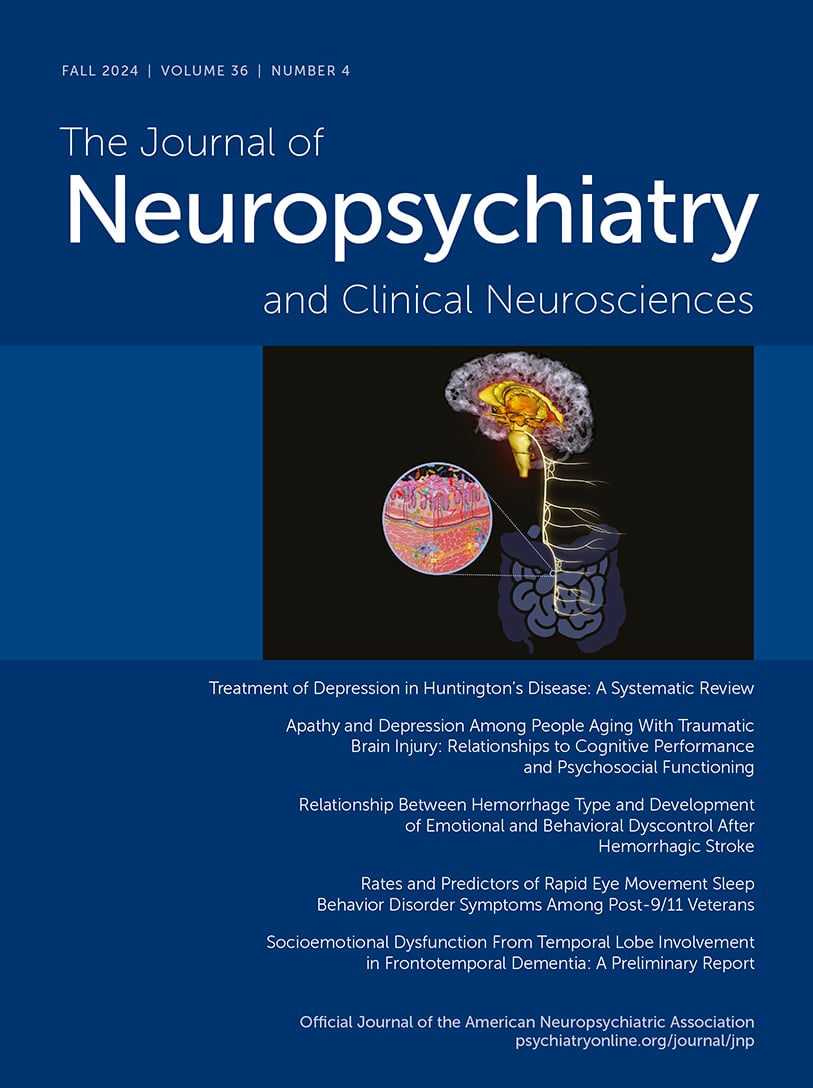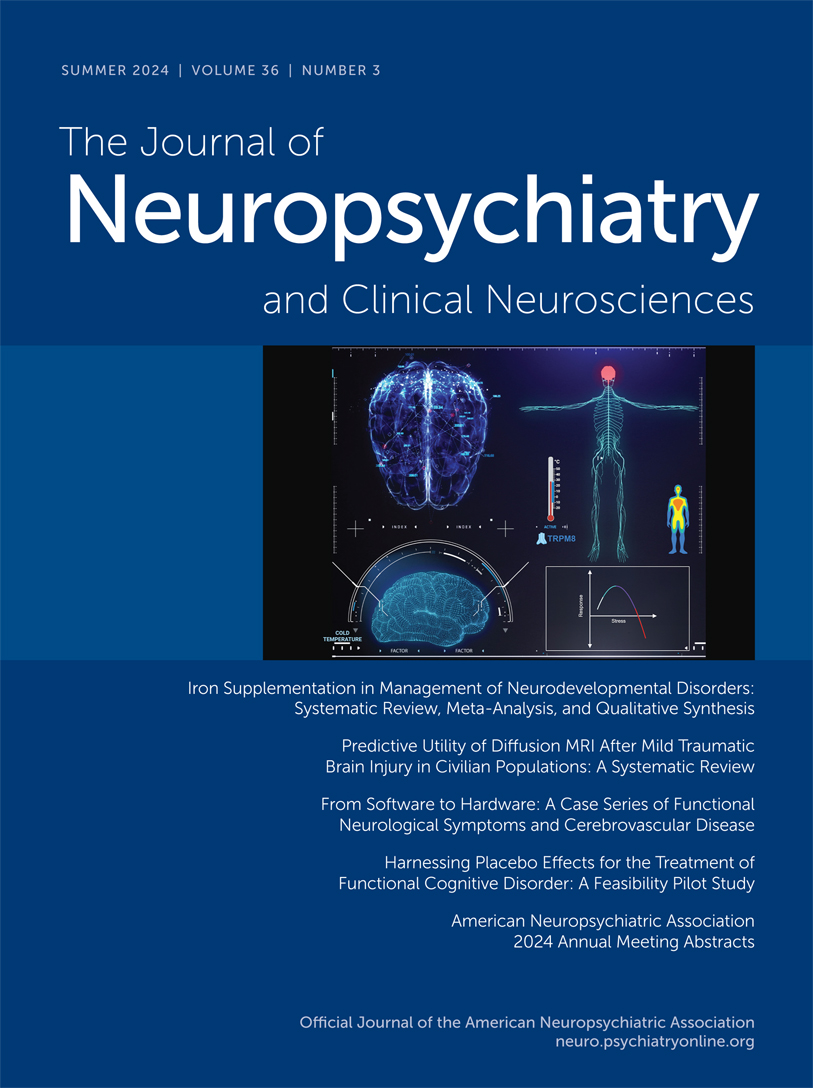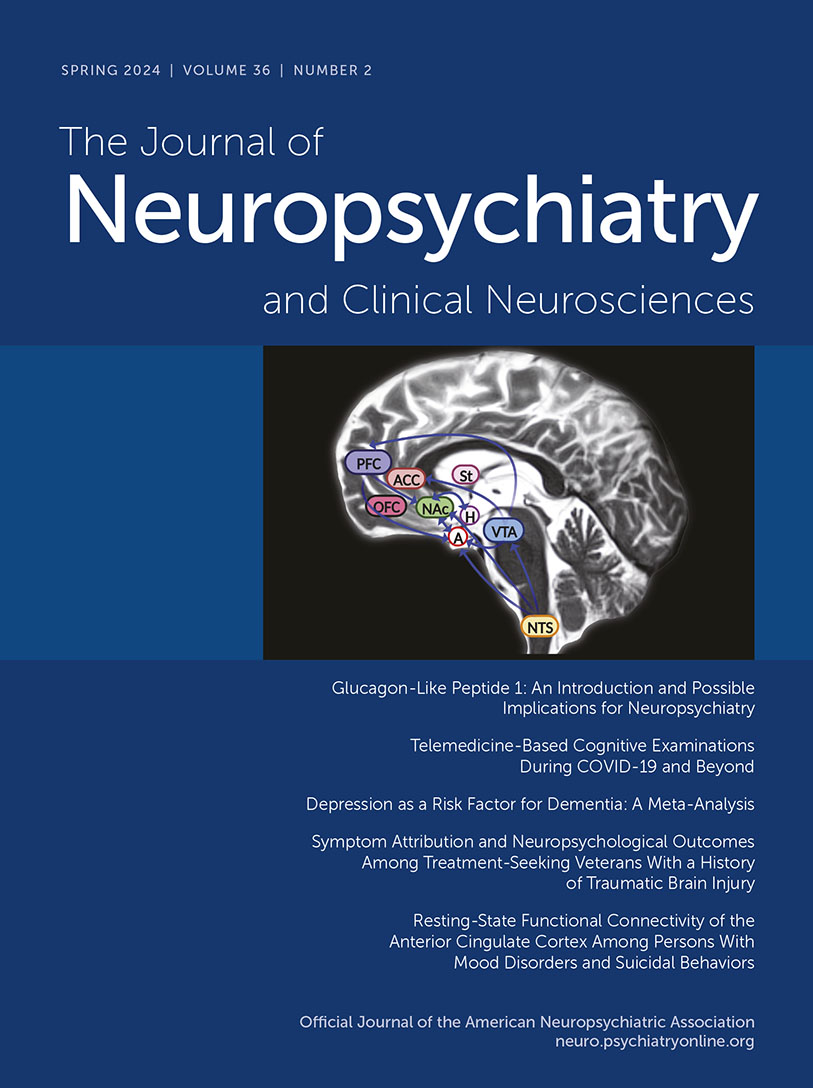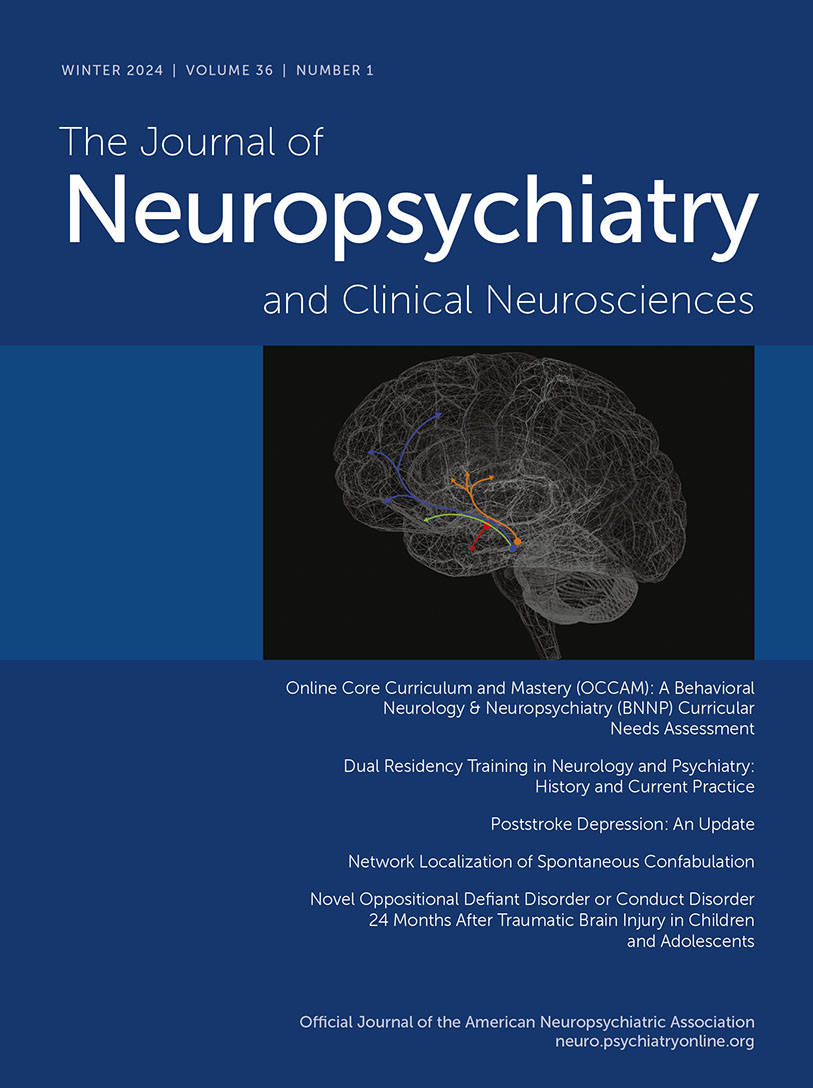The Journal of Neuropsychiatry and Clinical Neurosciences
- Volume 30
- Number 3
- July 2018
Windows to the Brain
Special Articles
Publication date: 24 April 2018
Pages173–179Noninvasive brain stimulation refers to a set of technologies and techniques with which to modulate the excitability of the brain via transcranial stimulation. Two major modalities of noninvasive brain stimulation are transcranial magnetic stimulation (...
https://doi.org/10.1176/appi.neuropsych.17110262Opinion
Regular Articles
Publication date: 30 May 2018
Pages183–187Huntington’s disease is characterized by motor and behavioral symptoms as well as cognitive decline. Apathy is a common behavioral symptom, and its severity is related to disease progression. It has been suggested that Huntington’s disease gene expansion ...
https://doi.org/10.1176/appi.neuropsych.18020031Publication date: 12 January 2018
Pages188–193Unemployment is common for those with Huntington’s disease (HD), a genetic neurodegenerative disorder, and affects patients’ quality of life. HD is characterized by motor disturbances, cognitive dysfunction, and psychiatric symptoms. The purpose of this ...
https://doi.org/10.1176/appi.neuropsych.17070144Publication date: 21 March 2018
Pages194–201Up to 90% of individuals with Huntington’s disease (HD)—a progressive, inherited neurodegenerative disorder—experience apathy. Apathy is particularly debilitating because it is marked by a reduction in goal-directed behaviors, including self-care, social ...
https://doi.org/10.1176/appi.neuropsych.17080173Publication date: 20 February 2018
Pages202–207The “δ” (for “dementia”) is a latent dementia phenotype that can be constructed by a unique confirmatory bifactor model in a structural equation model framework. Because it is derived from Spearman’s general intelligence factor, “g,” δ can be constructed ...
https://doi.org/10.1176/appi.neuropsych.17060110Publication date: 06 April 2018
Pages208–213Patients with behavioral variant frontotemporal dementia (bvFTD) and Alzheimer’s disease (AD) differ in basic emotional tone. Skin conduction levels (SCLs), a measure of sympathetic tone, may be a sensitive test for discriminating these two dementias ...
https://doi.org/10.1176/appi.neuropsych.17080168Publication date: 05 March 2018
Pages214–219Pseudobulbar affect (PBA) is a syndrome of affective disturbance associated with inappropriate laughter and crying, independent of mood. PBA is common in amyotrophic lateral sclerosis (ALS) and increasingly recognized in Parkinson’s disease (PD) and ...
https://doi.org/10.1176/appi.neuropsych.17070131Publication date: 05 March 2018
Pages220–227Mild traumatic brain injury (mTBI) is highly prevalent, with an estimated occurrence in the United States of more than 1.3 million per year. While one consequence of mTBI is impulsive aggressive behavior, very few studies have examined the relationship ...
https://doi.org/10.1176/appi.neuropsych.17070141Publication date: 06 April 2018
Pages228–235Dysfunction in the understanding of social signals has been reported in persons with epilepsy, which may partially explain lower levels of life satisfaction in this patient population. Extensive assessment is necessary, particularly when the mesial ...
https://doi.org/10.1176/appi.neuropsych.17080153Publication date: 24 April 2018
Pages236–241Excoriation (skin-picking) disorder (SPD) has similarities to obsessive-compulsive disorder (OCD) and is included within the obsessive-compulsive and related disorders (OCRD) diagnostic class in DSM-5. Separate neuroimaging and neurocognitive studies ...
https://doi.org/10.1176/appi.neuropsych.17050090Clinical and Research Reports
Publication date: 25 January 2018
Pages242–245Four transcranial magnetic stimulation (TMS) devices are currently approved for use in treatment-resistant depression. The authors present the first data-driven study examining the patient- and technician-experience using three of these distinct devices. ...
https://doi.org/10.1176/appi.neuropsych.17070146Case Reports
Book Review
Abstracts
Past Issues
View Issues Archive
Vol. 36 | No. 4

Vol. 36 | No. 3

Vol. 36 | No. 2
